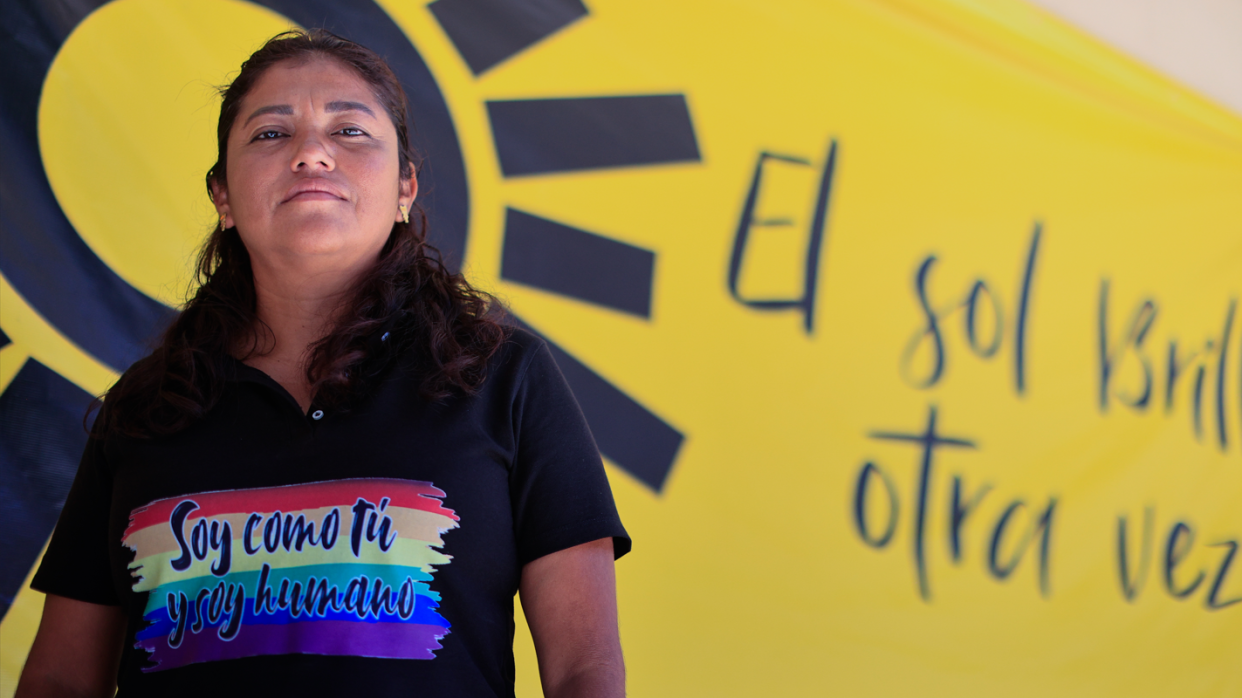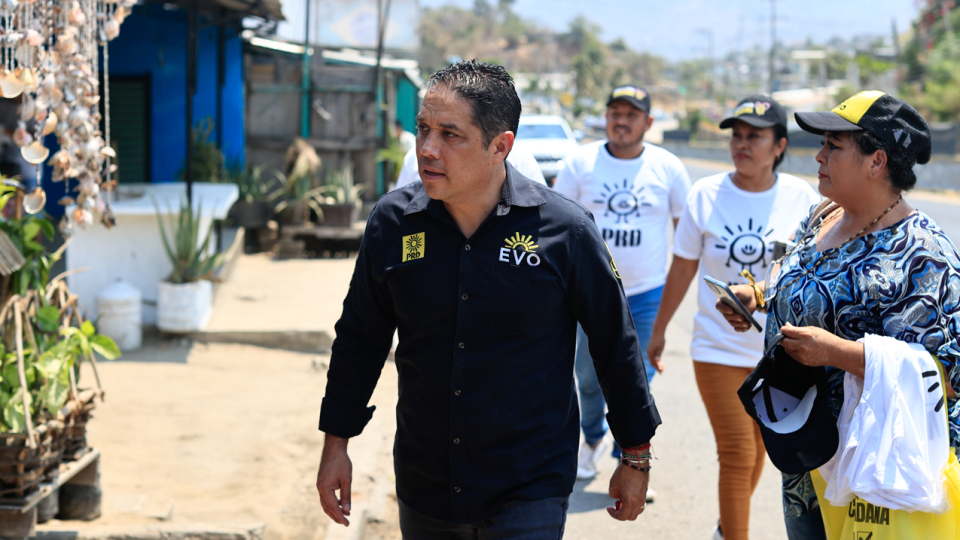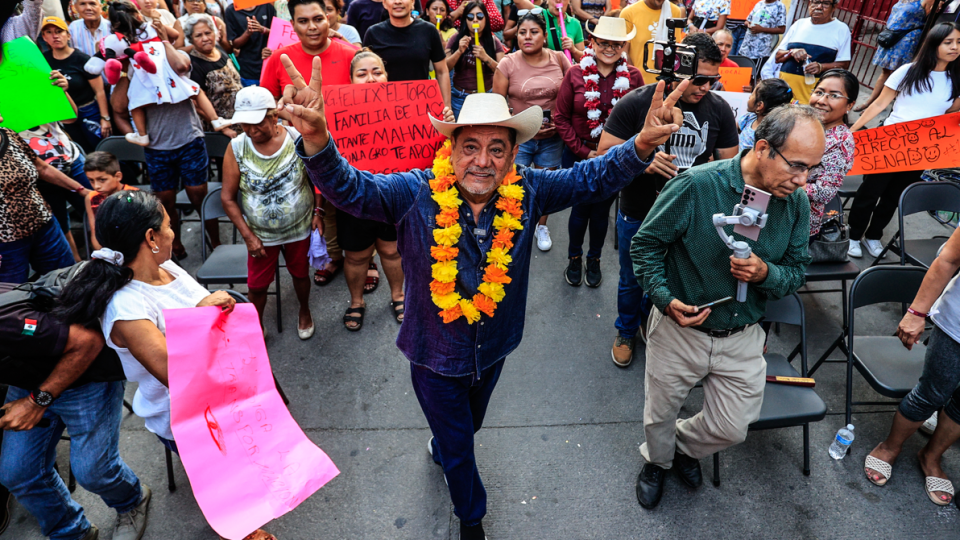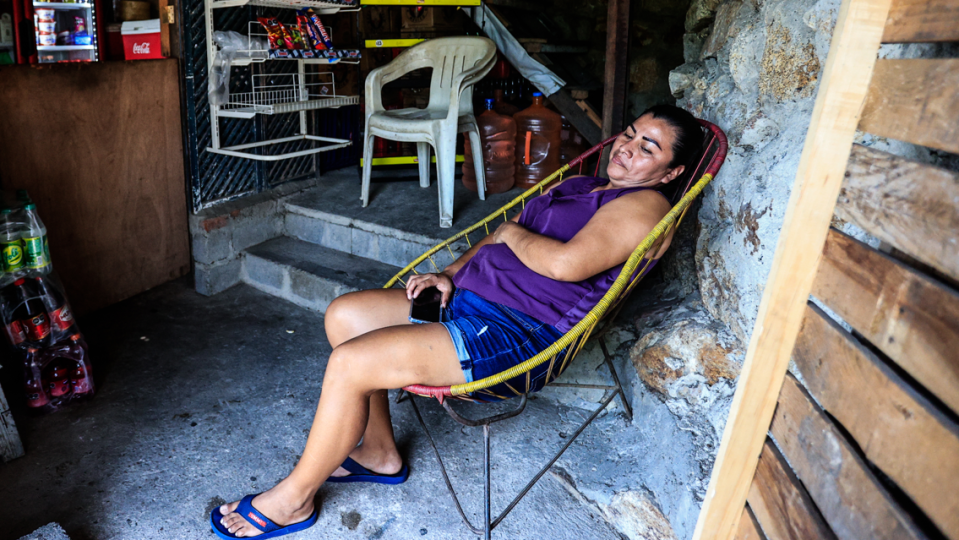The Mexican state where candidates are gunned down as they push for votes

In what is the most violent election campaign in Mexico’s history, the western state of Guerrero is the most dangerous place in the country to look for votes.
Few appreciate that better than Cinthia Juarez.
One of the first to be killed on the campaign trail was her childhood friend, Moises "Moy" Juarez Abarca. A nationally renowned gay rights activist, Mr Abarca was a local government candidate for the opposition PRD party before he was abducted by armed men.
His body was later found dumped in a mass grave with 16 others.
“Alongside my friend Moy, I’ve spent more than twenty years in political activism. This has been the most violent campaign we’ve ever seen in the state of Guerrero and in Acapulco,” says Cinthia, who has replaced him on the ticket.
With her colleague murdered and the investigation into his case essentially shelved, Cinthia is well aware of the risk she’s taking by running for office in his place. But the small, fiercely determined woman, who is also a leading gay rights defender in her community, says she refuses to give into fear.
“Of course, I’m afraid. I’m scared that one day I’ll leave my house and never come home, and it will be politically motivated. But politics is the only way we have to raise our voice, the only way to turn Acapulco back into the thriving port it once was.”
As the election nears, the violence has only worsened. At least 12 people were found murdered in Acapulco on Tuesday, including six bodies discovered dumped near a market, just days before the election on 2 June.
And a recent survey by a Mexican political consultancy firm, Integralia, paints a grim picture of political violence across the nation. Around 200 public servants, politicians and candidates have been murdered or threatened in the lead up to June’s election with more than 50 victims in Guerrero alone.
The violence has spanned the entire political spectrum, though candidates from the governing Morena party have statistically been the most affected.
Perhaps the highest profile killing in the state took place in Acapulco just before Christmas. One of Morena’s leading hopefuls for city mayor, Ricardo Taja, was gunned down as he ate dinner in a restaurant with his bodyguard.
Political violence perpetrated by the drug cartels is nothing new in Mexico.
But the extent of the problem in this campaign has shocked even seasoned politicians here. Mr Taja was expected to have fared well in the election had he secured the candidacy.
Names are being removed from the ballot via the bullet – meaning some voters will be forced to choose candidates who best serve the interests of organised crime rather than the needs of their communities.
Cinthia Juarez took the BBC canvassing around some local businesses with Evodio Velazquez. A former mayor of Acapulco, Mr Velazquez says he’s endured threats his entire political life.
While he was standing for congress in this election, armed men appeared at his home and demanded to see him, in a brazen act of intimidation.
He’s since abandoned the race.
“I’d rather be safe than sorry”, he says. “I don’t want to become another murder statistic.”
The former mayor says he had contacted the federal authorities to be assigned a security detail but that “it fell on deaf ears. They’ve taken no action at all".

Mr Velazquez says this most bloody of election campaigns has sown “uncertainty and fear in society” which he blames on “failed public policies in the areas of prevention and security”.
Yet governing party candidates are predicted to sweep the board at the local and state level in Guerrero.
Indeed, voters in the state are likely to re-elect one of the most controversial figures in Mexican politics, Senator Felix Salgado Macedonio.
The senator was forced to drop out of the race for state governor in 2021 over rape and sexual assault allegations. He denied the charges and the case against him was eventually dropped.
Throughout the scandal, he counted on the unwavering support of President Andres Manuel Lopez Obrador.
Official polls show around sixty percent of Mexicans consider their cities unsafe. Senator Salgado Macedonio insists that’s an improvement on previous years. He also denies the President’s security strategy – often summarised by his quote “abrazos, no balazos”, meaning “hugs, not bullets” – has failed:
“That quote must be put into context”, he argues. “The president was saying that in Mexico we want to see hugs, not bullets. That we need to address the root causes of the violence including poverty and the break-up of the family.”

However, he did admit that in Guerrero and across the nation there is a huge task ahead of whoever wins on 2nd June. His party’s candidate, Claudia Sheinbaum, is the front-runner to become Mexico’s first woman president.
“We have to move forward little by little until we achieve the pacification of the entire country,” says Senator Salgado. “But we have another problem: our big neighbour to the north. For the drugs to be bought and sold, there must first be supply and demand. So, who’s consuming the drugs?”
People in Acapulco have endured an extremely tough year.
Eight months ago, Hurricane Otis pummelled into the coastal city with devastating force. The damage caused by the category five storm is still evident from destroyed beachfront apartment blocks to low-income neighbourhoods.
Life and livelihoods were lost.
Mercedez Sanchez lost more than most. She weeps as she explains how her mother and brother were both buried under a landslide, just a few streets from her own modest home in the Francisco Villa neighbourhood.

Mercedez says she’s grateful for the government’s disaster response – which has included food parcels, direct financial aid of around $3,000 (£2,360) per household and even replacement domestic appliances.
But while Acapulco is beginning to pick itself up again after the storm, its security situation remains dire: not a day goes by in the city without a murder.
Just a few blocks away, the latest victim was a taxi driver, shot while waiting for customers, yellow police tape still cordoning off the crime scene and blood stains visible on the road.
As voting day approaches, Mercedez says the constant criminality will influence her final decision. Daily life in her community is fraught with danger.
“We can’t even go outside without fear. Even if you’re not looking for trouble, you could just be in the wrong place at the wrong time. It’s dangerous all the time.”


